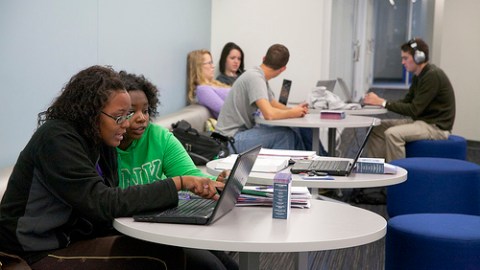Leverage Students for Their Own Success

Guest post by Kevin Flora
It’s not every day that a student comes to you asking for advice, wanting to bounce an idea around, or just has a random question. Oh wait… what’s that? It is?
As an educator (whether that be in preschool or higher education), we have the best chance to impact someone’s life. We not only hold the positional power that a student looks up to, but also provide a wealth of knowledge and expertise.
One of my responsibilities in the higher education realm is to work on the student success initiative. In a Google search for best practices, nothing exciting came up. Yes, taking time to meet with students is important and allowing them to formulate their own answers rather than shoving your own down their throat, but surely there is more to success.
Let’s take it a step further as adults. I propose an atmosphere of group discussion, yet individual attention. A space that provides adequate support, but screams empowerment. A culture that not just listens, but sees plans and action steps through until completion. This is not a “yes, but…” setting, but rather a “yes, and…” environment. Some ideas for this type of collaboration:
There are endless opportunities to leverage students and create student success. It’s the responsibility of you – the staff, the educator, the administrator, the custodian – to step out of a student’s way, help them up when they fall, and party with them when they succeed.
Image credit: Flickr user UMKC





